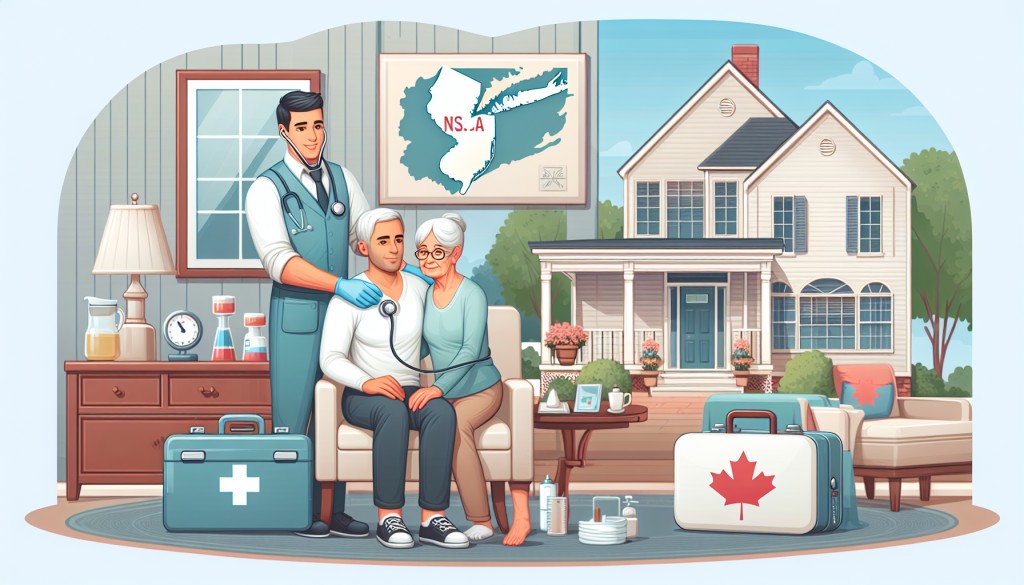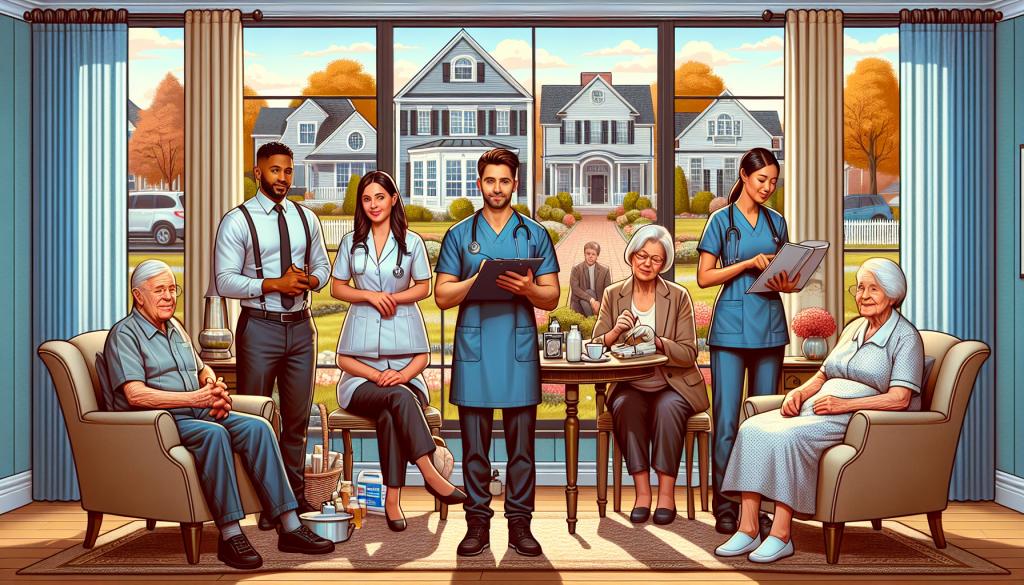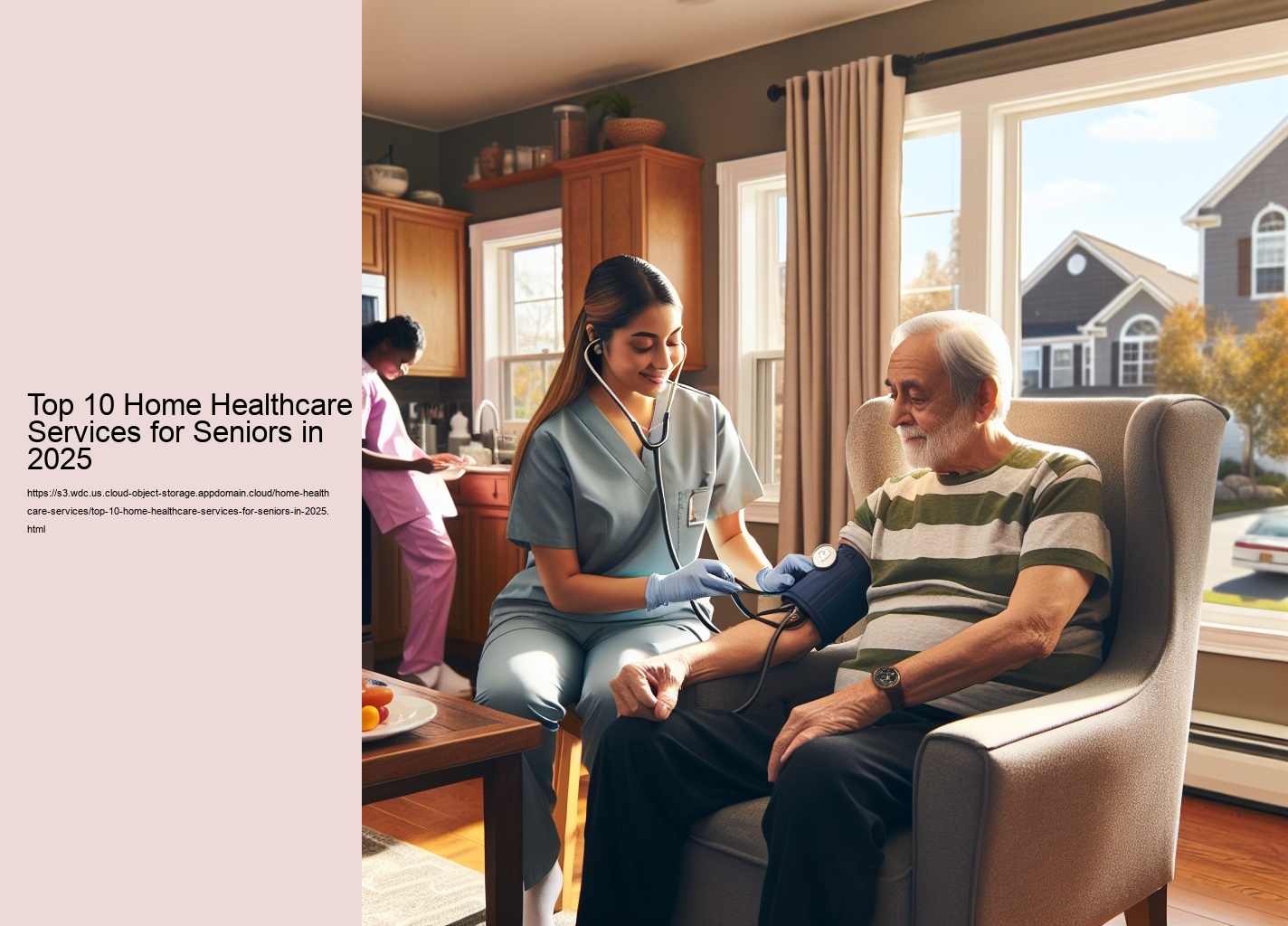Confirm Licensing, Accreditation, and Top Quality Rankings
Prior to you sign with any home doctor in 2025, deal with licensing, accreditation, and high quality ratings as non‑negotiables. How to Choose Home Healthcare Services in 2025 . Begin with the fundamentals: confirm the company is correctly licensed in your state for the precise solutions you require. "Home wellness" (skilled nursing, therapy, wound care) is controlled differently from "home treatment" or "personal care" (showering, dressing, companionship). Use your state wellness division or expert licensing board's online data source to verify the firm permit is energetic and in excellent standing, which it covers the best solution category. If the agency will bill Medicare, verify it is Medicare‑certified; you can cross‑check this on Medicare's Care Compare internet site.
Accreditation isn't the same as a license, yet it signals the firm has actually fulfilled greater requirements and goes through regular external testimonial. Look for respected accrediting bodies such as The Joint Compensation, CHAP, or ACHC. Ask for an existing certification certificate and the date of the last survey. For non‑medical home treatment, accreditation is voluntary; if an agency isn't accredited, they should be able to clarify just how they maintain high quality and oversight in its lack.
Do a much deeper credential look at individuals that will certainly remain in your home. Nurse practitioner, licensed nurses, physical and occupational therapists, and social employees all have private licenses you can verify via state boards. Home health aides need to fulfill state training needs. It's practical to ask the agency to validate that all personnel have actually passed history checks, are not on the federal OIG Exclusions Provide, and carry suitable expert liability and employees' payment insurance coverage. Demand evidence of the firm's basic responsibility insurance policy; several households additionally request a certification of insurance upon contracting.
Usage objective top quality ratings to compare firms, not just testimonials. On Medicare Care Contrast, examine the star ratings and explore certain measures like prompt initiation of treatment, rehospitalization prices, enhancement in movement and self‑care, and patient experience ratings from HHCAHPS surveys. In 2025, Home Health Value‑Based Getting uses nationwide, so ask the firm to share its most current efficiency or outcome reports and what it is doing to boost. For Medicaid home- and community‑based services, inspect your state's carrier directory for top quality indicators, vital event reports, and EVV (electronic browse through verification) conformity information. On-line reviews can be insightful yet should not override formal high quality information and regulatory documents.
Demand openness. Ask the agency for its most recent state survey outcomes and plan of adjustment, any kind of CMS sanctions or penalties, and just how issues are taken care of. In an age of telehealth and remote surveillance, ask about tool safety and privacy practices, HIPAA conformity, and whether any kind of electronic devices they utilize are FDA‑cleared where relevant. If the firm claims hospital or medical professional partnerships, verify how they share info, particularly if they incorporate with your medical professional's document system.
Red flags include evasive responses concerning licensing or survey history, expired accreditation, missing out on evidence of insurance, uncommonly high team turnover without any description, or quality scores well listed below neighborhood standards. A respectable company will welcome these questions, provide paperwork quickly, and help you analyze scores in the context of your needs. Confirming credentials and top quality up front takes time, yet it is one of the most trustworthy way to secure risk-free, effective care in the house.

Assess Telehealth, Remote Monitoring, and Data Safety
Evaluate Telehealth, Remote Monitoring, and Information Protection
In 2025, selecting a home doctor suggests looking beyond bedside skills to the electronic foundation that sustains your treatment. Telehealth, remote patient tracking, and information safety now figure out exactly how convenient, safe, and linked your treatment will certainly be.
Beginning with telehealth. Video gos to ought to really feel as reputable as a workplace appointment. Ask exactly how very easy it is to timetable, whether you can see the same clinician for connection, and what occurs if the link drops. Search for functions like e-prescribing, safe and secure messaging, after-visit summaries, and language accessibility such as interpreters or inscriptions. Verify the platform works on your gadgets, supports ease of access needs, and uses tech aid for senior citizens or caregivers. Just as essential is combination: does the telehealth system speak to your existing clinical records so your medical care medical professional sees updates? If treatment crosses state lines, confirm licensure and whether your insurance company covers the services you intend to use.
Remote tracking can change day-to-day live for individuals taking care of chronic conditions, recovering after surgical treatment, or requiring safety checks. Focus on scientific value and functional reliability. Which problems do they check and with what tools? Are the tools FDA-cleared and validated for home usage? Who watches the information, exactly how frequently, and what are the feedback times for unusual readings at night or on weekend breaks? Ask exactly how sharp limits are readied to restrict false alarms and exactly how frequently those thresholds are reviewed. Inspect whether devices are lent or purchased, who handles arrangement, training, and substitute, and what cellular or Wi‑Fi connection is required. Interoperability still matters here also: will your data flow into your health and wellness record, and can you see it in a patient application?

Data protection must never ever be an afterthought. A service provider's claim of "HIPAA certified" is a baseline, not a differentiator. Try to find independent audits or accreditations (for example, SOC 2 Type II, HITRUST, or ISO 27001), file encryption of information in transit and at rest, multi-factor verification, and role-based access with audit logs. Ask about event response and violation notice treatments, just how frequently they run safety and security drills, and their approach to ransomware durability and back-ups. For home tools, verify that information is encrypted on the tool and during transmission, software program is maintained to day, and shed or taken equipment can be remotely wiped. Clarify who has your data, the length of time it's maintained, how to request removal, and whether de-identified data is used for analytics or shared with 3rd parties. Make sure a Company Affiliate Contract exists between the modern technology suppliers and the treatment carrier, and that frontline staff are learnt privacy practices, consisting of getting approval for any recording.
Ultimately, consider the human side of the technology. Will they aid set up your Wi‑Fi or provide mobile kits if you do not have broadband? Do they supply clear instructions, large-print products, multilingual support, and caretaker training? Is there 24/7 tech assistance and an easy means to rise medical worries?
In an industry crowded with apps and gadgets, the very best home healthcare services in 2025 blend premium clinical treatment with trustworthy virtual accessibility, actionable monitoring, and rigorous defense of your info. Pick the group that explains their innovation simply, shows their safeguards, and makes it simple for you and your household to make use of.
Assess Treatment Plans, Staffing, and Caretaker Fit
Picking home medical care in 2025 ways looking beyond a glossy brochure. The appropriate partner will certainly reveal you a clear treatment strategy, reputable staffing, and a caregiver that genuinely fits your loved one's demands and character. Start with the treatment strategy. Ask just how the firm assesses needs and sets goals: not just identifies, but functional capabilities, drugs, drop danger, cognitive assistance, nourishment, solitude, transportation, and caregiver respite. A strong plan is composed by or under the guidance of a signed up nurse or specialist, with quantifiable results (for example, less drops, improved wheelchair, medication adherence) and a timetable for evaluation-- typically every 30 to 60 days or after any type of change in problem. In 2025, lots of companies use remote person monitoring and telehealth; ensure the plan discusses what gadgets are made use of, that examines the data, and exactly how information is shown your physician. Interoperability and privacy matter-- ask whether their systems attach to your doctor's electronic records, exactly how data is safeguarded, and who can see updates.

Staffing is where promises meet reality. Clear up whether caretakers are W‑2 staff members or 1099 professionals; workers typically have more powerful oversight, training, and insurance coverage. Validate credentials (CNA, HHA, LVN/LPN, RN), history checks, driving records if transport is included, booster shots, CPR, and any kind of specialized training like dementia or Parkinson's treatment. Request for their turnover rate, average caregiver tenure, and fill rate for shifts-- numbers that expose security. Connection is crucial: will you have a key caretaker with a tiny backup pool, or see regular rotations? What is the back-up plan for unwell days, no-shows, storms, or public health signals? In a tight labor market, agencies that pay rather and provide advantages tend to preserve staff far better-- don't hesitate to ask just how they sustain caregiver well‑being and prevent exhaustion.
Caretaker fit goes beyond availability. Share candid information concerning routines, language choices, cultural or religious techniques, pet convenience, smoking cigarettes level of sensitivities, music or food preferences, and individuality style. A great company will certainly make use of structured matching-- abilities, language, social expertise, sex choice, driving ability, and physical ability for transfers or devices-- to suggest a caregiver and set up a meet‑and‑greet. Lots of will certainly let you attempt a brief test shift prior to dedicating. Observe chemistry: Does the caregiver pay attention, make eye call, and ask thoughtful questions? Do they respect limits while being proactive? If your liked one has dementia, seek patience, redirection skills, and a calmness, reassuring presence.
Communication ought to be basic and constant. Ask to see the family site or app if one exists: Can you view visit notes, jobs finished, vitals, and messages? Just how quickly does the workplace respond, and what is the escalation path after hours? That is your called treatment manager, and exactly how frequently will they check out face to face to supervise care? In 2025, several states call for digital check out confirmation-- confirm that clock‑in/ out shields you from invoicing for missed time, and that your information is not made use of for anything else without consent.
Quality and responsibility are nonnegotiable. Search for certification (Joint Compensation, LAD, or ACHC) and state licensure. Inquire about customer satisfaction scores, problem resolution time, event prices (drops, hospital stays), and any type of value‑based programs they participate in. Ask for two recent customer referrals with similar demands. Evaluation contract information very carefully: minimal hours, cancellation terms, substitute assurances, and what happens if the caretaker isn't a fit. If you're utilizing Medicare for proficient home wellness, clarify what is covered and for the length of time; for personal task treatment, inquire about long‑term treatment insurance coverage, Medicaid waivers, VA advantages, and whether the agency can aid with paperwork.
Practical safety and security concerns round out the photo. Exactly how do they examine the home for dangers and advise tools? Do they train caregivers on safe transfers and infection control? What is the policy on cams in the home? If the caregiver will drive your enjoyed one, confirm insurance policy protection and vehicle criteria.
Warning include obscure or cookie‑cutter care strategies, no registered nurse oversight, high turnover, frequent last‑minute schedule adjustments, unwillingness to share result information, aggressive sales tactics, or resistance to a meet‑and‑greet. Thumbs-up include clear reporting, foreseeable staffing with back-ups, respectful matching, and a clear plan for continual improvement.
Ultimately, the appropriate choice really feels both specialist and individual. You need to see a strategy you can comprehend, a group you can get to, and a caretaker your loved one anticipates seeing. If any item does not really feel right, maintain looking-- fit, in home treatment, is whatever.
Compare Rates, Insurance Coverage Protection, and Agreement Terms
Contrasting pricing, insurance coverage, and contract terms is where most families either save thousands-- or face unpleasant shocks-- when selecting home healthcare solutions in 2025. Treat this like you would certainly any kind of significant acquisition: need quality, verify advantages in writing, and read the fine print with a calmness, unconvinced eye.
Start with pricing. Ask each service provider for an itemized quote that matches your real treatment plan: variety of hours each week, degree of caregiver (assistant vs. LPN/RN), and any kind of specialized needs such as mental deterioration treatment, injury treatment, or post-surgical support. In 2025 you'll see several models-- hourly rates, visit-based fees, live-in rates, and bundled "hybrid" plans combining in-person care with telehealth and remote tracking. Compare apples to apples by consisting of attachments: minimum-hour needs, overtime limits, weekend and holiday premiums, travel or parking costs, registered nurse supervision or treatment management costs, innovation or device service, and fees for urgent organizing. Ask how typically rates can change, whether there's a price-lock period, and if increases are linked to a fixed portion or an index. Clarify what takes place when the treatment strategy adjustments mid-month: do they pro-rate or re-quote? If you're considering a pc registry instead of a full-service firm, consider your duty for pay-roll tax obligations, workers' compensation, and responsibility-- what looks less expensive upfront can set you back more in danger and administration.
Next, determine insurance coverage. Know the distinction between medical home wellness (competent nursing, therapy, usually covered if medically required) and non-medical home care (aid with showering, dishes, and friendship, usually not covered by traditional medical insurance). For Medicare: skilled home health can be covered when qualification criteria are met, however personal care is commonly not, unless folded right into a strategy of care. Medicare Benefit intends progressively supply supplementary in-home assistance, dish shipment, or remote surveillance-- benefits vary extensively by plan, require in-network suppliers, and may require prior authorization or recertification, so verify restrictions, copays, and see caps before you start. Medicaid benefits and Home- and Community-Based Solutions waivers can be generous yet vary by state and took care of care strategy; waitlists and carrier networks issue. Long-lasting care insurance can money significant hours when benefit triggers are fulfilled (normally requiring assist with 2 or even more tasks of everyday living or cognitive disability), however enjoy removal durations, daily or regular monthly caps, and lifetime maximums. Experts may get approved for Aid and Attendance or Homemaker/Home Health Aide solutions through the VA. Ask if the company will certainly confirm advantages, take care of authorizations, and bill straight, and whether they'll proceed care if consents lapse. If you prepare to self-pay, ask about discount rates for longer timetables, autopay, or packed programs. HSAs and FSAs can commonly be utilized for clinically required solutions; for tax reductions or credit scores, consult a tax obligation expert.
Now, the agreement terms-- the part the majority of people skim and later on remorse. Seek:
- Termination and notification: Can you stop briefly or terminate without penalties? Are there minimums or early discontinuation fees?
- Auto-renewal and rate adjustments: Exactly how are increases communicated and capped?
- Staffing and alternatives: How rapidly do they replace a caretaker who's sick or not a fit? Is there a trial period or fulfillment guarantee?
- Non-solicitation and buy-out: If you intend to hire a caregiver directly later, what charge applies?
- Worker condition and insurance coverage: Are caretakers W-2 staff members covered by workers' comp and obligation insurance? Ask for evidence.
- Extent of practice: What jobs can assistants legally carry out in your state (drug administration, transfers, catheter treatment)? That oversees and just how usually?
- Paperwork and transparency: Will you have accessibility to digital visit logs, care notes, and reassessments? Who updates the care plan and exactly how frequently?
- Payment cycle and disputes: Deposits, late charges, reimbursements for extra hours, rounding guidelines for change start/stop times, and the process for disputing an expense.
- Security and privacy: Incident coverage, infection control, background checks, driving policies, and data personal privacy for any kind of remote surveillance gadgets.
- Disagreement resolution: Mediation provisions, location, and your civil liberties under state consumer regulations.
Do an easy "real cost" contrast across finalists: predicted once a week hours x price + all anticipated charges-- validated insurance policy compensation. After that layer in non-financial worth: responsiveness, backup protection, managerial high quality, and result tracking. In 2025, credible firms can show quality metrics and may join value-based programs-- ask for their a hospital stay decrease prices or customer fulfillment scores.
Prior to finalizing, get every promise in writing, consisting of start date, caregiver credentials, and the specific solutions covered. If the contract really feels thick or discriminatory, have a trusted advisor or lawyer evaluate it. The very best deal is not just the most affordable rate-- it's the setup that delivers safe, trusted care with foreseeable prices and no surprises.
